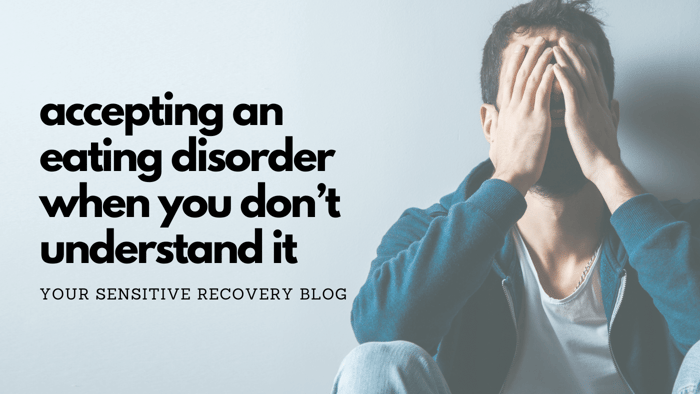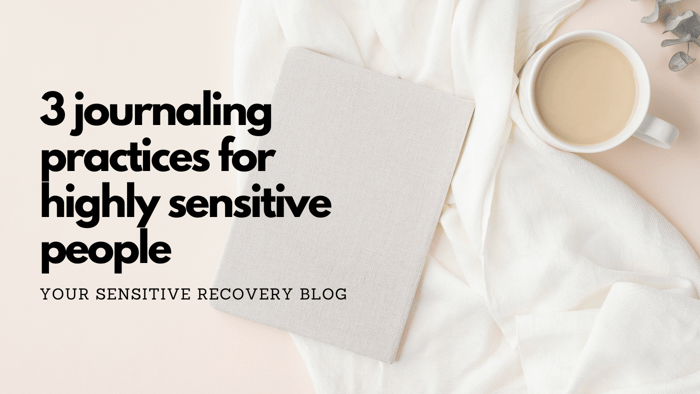Trying to fully understand the why and how of an eating disorder is like trying to catch smoke with your bare hands. Everyone knows that acceptance is imperative for the recovery process, but how in the world can we accept something that just doesn't make sense?
I spent too long spinning my wheels, futilely searching for THE reason I developed an eating disorder.
I wanted to comprehend exactly why I had traversed from genuinely happy and excited about life to depressed and bent on self-destruction. I devoured scholarly articles and memoirs about eating disorders. I talked myself into tangled knots in therapy. I even decided to go to graduate school.
But the longer my energy stayed focused on the Why of developing the disorder, the more I avoided the how of getting better.
Nearly two decades on, with that Master's degree obtained and 14 years and counting of clinical work under my belt, I now understand so much more about the development of disordered eating patterns. I understand the genetics and predisposing traits, the neuroscience, and attachment wounds...I have a pretty good handle on my Why.
Don't get me wrong. Developing knowledge and understanding about what underlies our personal struggles with food and body is very important for the recovery process.
The iceberg metaphor is helpful here: we can't only focus on what's on the surface (the symptoms). We have to see what's under the water, the unmet needs and desires that are at the root of the symptoms. But the reverse is also true. If we only focus on what's under the surface, the symptoms and the behaviors may not shift.
Highly Sensitive People are particularly prone to getting stuck in the process of just trying to GET IT. With our depth of processing, we're naturally curious and introspective - and this can definitely be an asset in our recovery journeys. But it's important to be aware of how this can become a roadblock as well.
We can REALLY feel like we're getting somewhere because of all the processing going on, but it's more like we're just rocking furiously back and forth in a rocking chair.
In my personal journey, these are the three things that helped me accept my eating disorder without fully understanding it:
- Working with a therapist who had lived experience. This was very powerful for me. I needed a therapist who had a better understanding of eating disorders than I did (and this is not the case for all professionals).
- Connecting with other people who were also in recovery. Hearing someone say, "Me too. I get it" was SO helpful when my disorder wanted to isolate me. My Healthy-Self became showed up for these people, which strengthened and enabled it to eventually show up for me too.
- Getting clear on what was scarier to me than letting go of my eating disorder, my safety net. I didn't quite know what I wanted for my life, but I at least knew what I didn't want. That helped me determine the action steps I needed to take toward recovery.
Acceptance of where we are and where we've come from is required to get to where we want to be.
When I think about it, it's a misnomer, the word "recover" because it essentially means to return to a previous state. This is something much better than that. We can't return to the people we were before developing eating disorders, because we'd just do it all over again. We're discovering. We're growing. We're evolving. It's forward movement. And that's where acceptance is key.
There are definitely some parts of my eating disorder that still don't make sense to me. That's ok because I'm living in the now and will continue striving to stay open and accepting of all the discoveries yet to come.
✨ Josie Munroe, LMFT is a licensed therapist and owner of JosieMunroe.com and Your Sensitive Recovery As a recovered clinician and Highly Sensitive Person, she loves supporting others on their journeys to form new, empowered relationships with food, their bodies, and their sensitivity. Join the newsletter for a weekly boost of hope and inspiration. You deserve a recovery that works for you! ✨





